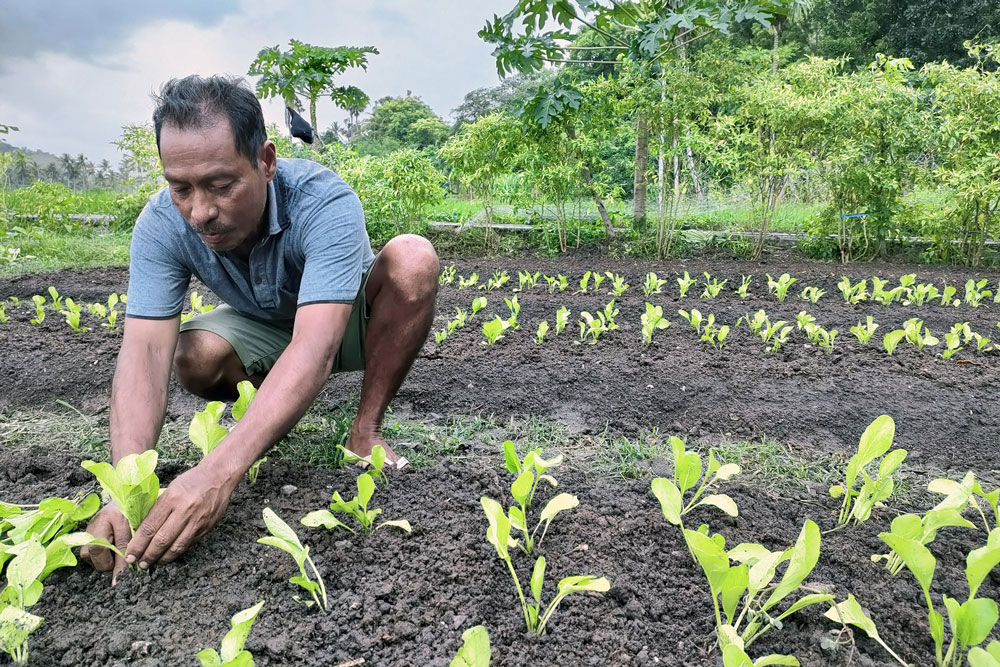Impact stories
West Timor is the poorest province in Indonesia, and people’s ability to improve their lives depends on opportunities to earn a sustainable income.
Waluwanja gets up for work every day at 5am. After a coffee he’s straight into his garden, clearing weeds, watering plants and checking for pests. He grows a variety of vegetables, and lately he’s been testing out mustard greens and rice paddies, which he will sell wholesale to street vendors in his community. When a crop is ready for harvest, he prepares and delivers the produce to his customers.
Waluwanja learned how to run a productive garden business through Australian NGO Cooperation Program (ANCP) NGO UnitingWorld and their partner in West Timor, TLM.
A few years ago, Waluwanja visited a community garden project run by TLM that produces food and teaches people about sustainable agriculture. He walked away inspired to prepare the large plot of land behind his home to grow fresh food as well as his income. The additional training he received from TLM gave him the knowledge on organics fertilisers, planting strategies and how to manage a business.
After a lot of hard work and time spent experimenting with different organic fertilisers and planting strategies, he started to build a customer base among the street vendors around his village.
The income it generated enabled him to meet his daily needs, but Waluwanja realised that if he was going to grow the business even more, he was going to need help. So he reached out to some of his neighbours to work with him and is happy that he’s creating incomes for others.
Waluwanja’s garden business is now so productive that it generates an income averaging between AUD $545 - $1,636 per month. Lately he’s started building a new stall to sell his vegetables and other daily necessities from the front of his home.
Waluwanja says he works so hard because he wants to earn enough to be able to send his five children to school and eventually, university.
“Thank you so much for giving me a lot of knowledge about agriculture and village governance, so that I can grow to become a successful farmer,” he says.

